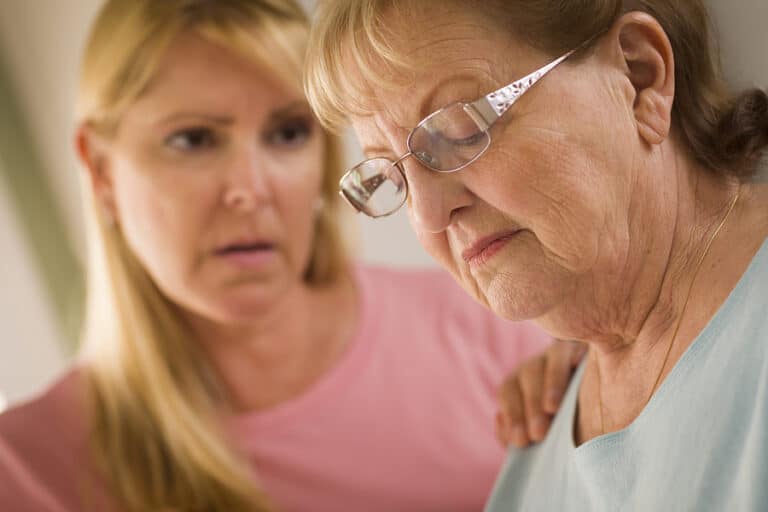Everyone worries about experiencing declining health as they age, and most people do harbor fears about growing old and depending on others for their care. These emotions are usually what’s behind an aging adult’s resistance to in-home care when it is suggested by their relatives. Family caregivers have the hard task of convincing their aging relatives that they do indeed need some in-home help.

Why Seniors May Not Want to Talk.
When elderly relatives who currently live alone begin showing the signs of struggle with basic tasks, it can cause family caregivers to worry about their health and safety. Examples of health issues that can become obstacles to self-care are diabetes, arthritis, stroke, poor vision, and chronic pain. It may be obvious to others that the elderly person needs an elderly care provider, but it’s the last thing that the senior wants.
Fear of change, financial worries, and denial that they need help are other possible explanations as to why an elderly person is resistant to the idea of in-home care. Strong emotions like pride, fear, worry, and resentment are difficult for them to overcome when thinking about the possibility of needing someone’s help. Nevertheless, it’s the right time to hold a discussion about moving forward, but when family caregivers bring it up, they are often shut down by seniors who simply don’t want to talk about it.
Responding to Stubborn Seniors.
Because it is such an emotional topic, seniors may not be able to control their thoughts and emotions. Family caregivers may experience yelling, crying, or even anger. However, by staying calm and pointing out all the benefits of an elderly care provider, they often find some success in working with their aging relative about the needs and the selection process. Seniors want to feel empowered and in control of their lives, so allowing them some input is important.
Another good piece of advice for both seniors and family caregivers is to begin the in-home services slowly and expand over time. For example, the elderly care provider may just come once per week for the first month or so to do some housework and socialize with the aging adult. As everyone becomes accustomed to their presence and gets to know their personalities, the duties can expand. Elderly care providers can also help with laundry, meal preparation, dressing and grooming, and much more.
It may take many multiple conversations on the topic of in-home care before elderly adults will even listen to family caregivers about their concerns. It’s best to start talking about things early, before family caregivers see all those red flags and it’s getting too late to let the current situation last for long. Compassion, patience, persistence, and experimentation are the keys to getting reluctant seniors to get on board with elderly care providers.
If you or an aging loved one are considering hiring elderly care in Simpsonville, SC, contact Heart of the Carolinas Home Care at 864-991-3116. Providing Home Care Services in Greenville, Simpsonville, Greer, Anderson, Spartanburg, Mauldin, Seneca, Laurens, Charleston, Columbia and the surrounding areas.
- Is it Possible to Prevent Family Caregiver Burnout? - April 25, 2025
- Home Care Assistance Helps Seniors After A Fall - April 9, 2025
- How Home Care Supports Seniors Who Are Hard of Hearing - March 28, 2025

